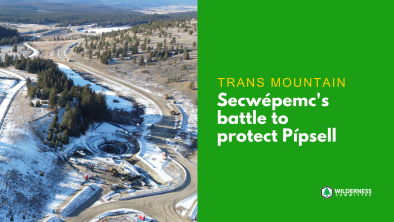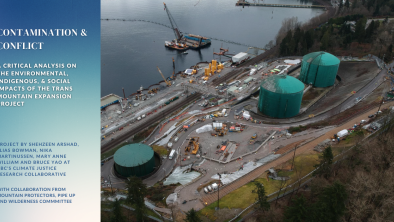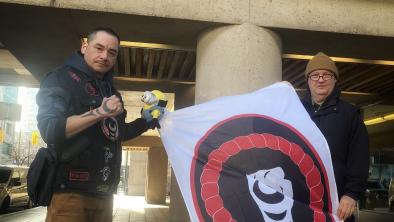Climate Karma Hits Home in BC
The Huffington Post
By Eoin Madden
April 15, 2015
I remember in 2010, before I knew my future lay in Canada, I was in Scotland enjoying my Canadian friend’s pride over hosting the Winter Olympics. One detail that twigged my attention at the time was the fact that snow was being trucked to the slopes surrounding Vancouver, because it was unusually warm that winter and they desperately needed it for the alpine events. When I asked whether or not trucking in snow was commonplace in Canada, I got a clear and uncompromising response: no this was freakish, an uncommon practice born out of bad natural luck.
In 2015, as a resident of North Vancouver, I climbed the very same slopes that hosted those Olympic Games. I marvelled at the beauty, the clean air and the warmth. I was deeply at peace, except for one unavoidable reality – it was mid-February, temperatures were in the high teens and the slopes were as bare as could be expected in high summer.
The limited snowfall of 2010 has been bested by this year’s total failure to deliver a snowpack in southwestern BC, and “freak” weather has become the new normal. Ironically, while we were being spooked by magnolia trees blooming outside our Vancouver office in February, the eastern side of the continent was in a deep freeze. Even more ironically, scientists say that freeze was caused by the rapid melting of the Arctic ice cap.
March came around and the LA Marathon in California saw record-smashing temperatures 20 degrees above normal. The surrounding agricultural hinterland was well into its fourth year of a punishing drought, putting the region’s ability to feed its citizens in question. By “region,” I mean pretty much the entire vegetable-eating population of North America, as California supplies over 90 per cent of all the tomatoes and broccoli in the US, as well as at least a third of BC’s fruits and vegetables. That’s a big dependency, and the Californian drought should serve as a wake-up call for more tough times ahead.
April brought a fresh new proclamation for BC: get out and see the glaciers before they are forever confined to history. A new study concluded that the glaciers viewed by tourists from the famous Icefields Parkway road will vanish by 2100, unless we get really good at cutting back on our use of fossil fuels.
The shellfish industry of Vancouver Island is also getting its head around a much more acidic sea, another process driven by climate change. As shellfish growers grapple with this new reality, other British Columbians strain to comprehend what the lack of snow-melt means for our salmon. We’re also dealing with the loss of over half our pine resources to the mountain pine beetle, due to warmer winters driven by, you guessed it…climate change. It seems our climate karma has come home to roost.
This week, the premiers of Canada’s provinces and territories are meeting in Quebec City to discuss their response to this climate challenge. The federal government has failed us on the climate front, and the premiers have been left to pick up the tab as best they can. They have to try to achieve responsible action in a political atmosphere where oil and gas companies seem to dictate the terms, always swimming against this tide of influence. Sadly, they will be meeting without Premier Clark of BC, who is talking up her own government’s climate policies at the World Bank in Washington, DC instead.
My message to the Premier Clark: don’t just talk the talk. Walk away from the giant new LNG industry that you’re promoting – it’s a climate disaster in the making. Take back our ability to conduct our own environmental assessments of big national projects such as the Kinder Morgan tar sands pipeline, a right that the BC government gave away in 2010. Thaw the freeze you put on the carbon tax in 2013 and regain the government’s climate leadership role by setting the goal of $100 per tonne of carbon. After all, companies like ExxonMobil are already pegging the cost of carbon internally at $60.
My message to readers like you is simple: join us in changing the course of history. As residents of the Pacific Northwest, we stand to play a critical role in averting the worst of global climate change. There are tumultuous shifts happening within our societies, as people – from grannies to high-schoolers –make a brave stand against the fossil fuel industry and its government enablers. Communities all along the western waters known as the Salish Sea are coming together across borders to save our shared climate.
The climate impacts hitting home are becoming more difficult every year. However, as so often in life, major breakthroughs seem to come at the most uncomfortable of times. I believe that we will meet the challenge of climate change, and we’ll emerge from that challenge with renewed confidence in our own power to change our communities. It’s already happening – just look at the 25,000-strong climate march this past weekend in Quebec. Our premiers can either surf the wave of social change bearing down on them, or allow it to dump them head-first in the sand.
Photo: An abandoned ski hill – with no snow – on Vancouver Island in mid-winter, February 2015. (Alexis Stoymenoff)


